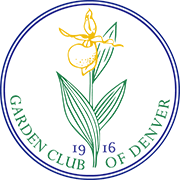Bees are buzzin’ and bulbs are blooming, it must be Spring! As you craft your wish lists for plants this season, consider supporting local nurseries and retailers who are committed to offering Pollinator Safe plants. These plants are grown either organically or ‘neonic-free’. Providing forage for pollinators is an important way to offer support. Let’s make sure their food sources are healthy and don’t expose them to harmful pesticides. Eliminating the use of pesticides is also better for the environment and helps protect our waterways.
The Bee Safe Boulder Web site has an excellent list of retailers who have taken the Pollinator Safe pledge to offer at least a selection of pollinator healthy options. Some nurseries have even eliminated the use of neonics all together. Check out the list here:https://beesafeboulder.org/beesaferetailers/
Hardy Boy Plants also has an organic line and Welby Gardens announced that theirHardyStarts line is now neonic free! If in doubt, ask which plants are pollinator safe!
Here are a few pollinator-friendly planting tips:
- Plan for as long a season of bloom as possible (early spring to late fall) with at least three different species of plants blooming at the same time all season. A diversity of plants increases the pollinators.
- Instead of just planting one of each species scattered throughout the garden, try planting clumps of at least 3 of the same species – helps the pollinator save energy.
- Most bees and butterflies prefer sunny, open areas. Pollinators attracted to open sunny areas will also have more choices to pollinate the flowers or lay eggs on the taller shrubs and trees along the borders or north end of your yard.
- Try leaving areas of bare soil for ground nesting bees, which are the bulk of our native bee population.
